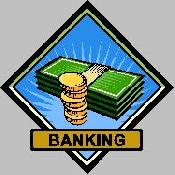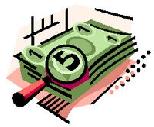
 |
|
| Financial Terms | |
| Put provision |
|
Information about financial, finance, business, accounting, payroll, inventory, investment, money, inventory control, stock trading, financial advisor, tax advisor, credit.
Main Page: financial advisor, accounting, money, credit, business, payroll, finance, tax advisor, |
Definition of Put provision
Put provisionGives the holder of a floating-rate bond the right to redeem his note at par on the coupon
Related Terms:Call provisionAn embedded option granting a bond issuer the right to buy back all or part of the issue prior Covered PutA put option position in which the option writer also is short the corresponding stock or has Fair price provisionSee:appraisal rights. Imputation tax systemArrangement by which investors who receive a dividend also receive a tax credit for Input-output tablesTables that indicate how much each industry requires of the production of each other Optimal redemption provisionprovision of a bond indenture that governs the issuer's ability to call the Poison putA covenant allowing the bondholder to demand repayment in the event of a hostile merger.  Protective put buying strategyA strategy that involves buying a put option on the underlying security that is Provisional call featureA feature in a convertible issue that allows the issuer to call the issue during the noncall PutAn option granting the right to sell the underlying futures contract. Opposite of a call. Put an optionTo exercise a put option. Put bondA bond that the holder may choose either to exchange for par value at some date or to extend for a Put optionThis security gives investors the right to sell (or put) fixed number of shares at a fixed price within Put priceThe price at which the asset will be sold if a put option is exercised. Also called the strike or Put swaptionA financial tool in which the buyer has the right, or option, to enter into a swap as a floatingrate Put-call parity relationshipThe relationship between the price of a put and the price of a call on the same  Throughput agreementAn agreement to put a specified amount of product per period through a particular Transferable put rightAn option issued by the firm to its shareholders to sell the firm one share of its Uncovered putA short put option position in which the writer does not have a corresponding short stock ProvisionEstimates of possible future liabilities that may arise. Throughput contributionSales revenue less the cost of materials. Put OptionA contract that gives the holder the right to sell an asset for a computer-aided design (CAD)a system using computer graphics for product designs computer-aided manufacturing (CAM)the use of computers to control production processes through numerically computer integrated manufacturing (CIM)the integration of two or more flexible manufacturing systems through the use of a host computer and an information networking system input-output coefficienta number (prefaced as a multiplier throughputthe total completed and sold output of a plant during a period  PutAn option to sell a stipulated amount of stock or securities within a Puttable bondA bond that allows the holder to redeem the bond at a put optionRight to sell an asset at a specified exercise price on or before the exercise date. Full-Employment OutputThe level of output produced by the economy when operating at the natural rate of unemployment. ImputeTo assign a value to a good or service in place of a market value that is not available. Imputed RentThe value of consumption services obtained by owning one's house rather than having to pay rent. National OutputGDP. Output GapThe difference between full employment output and current output. Potential Output or Potential GDPOutput produced when the economy is operating at its natural rate of unemployment. Antifraud ProvisionsSpecific sections and rules of the 1933 Act and 1934 Act that are Income Tax ProvisionThe expense deduction from pretax book income reported on the Provision for Doubtful AccountsAn operating expense recorded when the allowance for Sales Revenue Revenue recognized from the sales of products as opposed to the provision ofservices. PutawayThe process of moving received items to storage and recording the related Antidilution ProvisionsA clause in a shareholders agreement preventing a company from issuing additional shares, without allowing the current shareholders the opportunity to participate in the offering to avoid dilution of their percentage ownership. Put OptionContract that grants the right to sell at a specified price at some time in the future. Related to : financial, finance, business, accounting, payroll, inventory, investment, money, inventory control, stock trading, financial advisor, tax advisor, credit. |